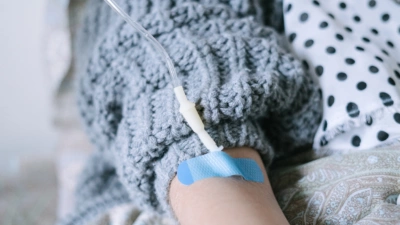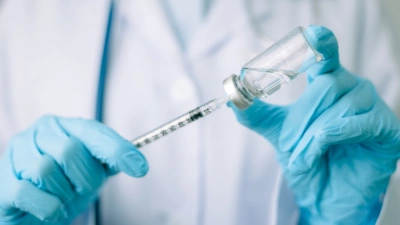Radiotherapy (also called radiation therapy) is a type of treatment that uses high energy x-rays to kill cancer cells and shrink tumours. Radiotherapy is generally called a local therapy because it only destroys cancer cells in the treated area (the radiation field).
Common radiation fields include the mantle field (treating the lymph nodes of the neck, chest and armpit), the upper abdominal field (abdomen and sometimes spleen), the pelvic field (hips and groin) and the spine. Your doctor will treat the smallest area possible to avoid affecting the normal tissue.
Before you start radiotherapy, a radiation oncologist (a doctor who specialises in treating people with radiotherapy) will carefully calculate how much radiotherapy you need (the dose). You will have scans to work out the best position to be in, and the area or areas of your body that need to be treated will be marked with tiny ink dots on your skin using a special pen.
Radiotherapy is usually given in small doses (also known as fractions) in the radiotherapy department of the hospital. You do not need to be admitted to hospital for this treatment, but if you live far away, you may need to organise closer accommodation for this time. If you have any questions about your travel or accommodation options, ask your health care team.
During radiotherapy you will be positioned on a table underneath the radiotherapy machine, which will deliver the planned dose of radiation. If necessary, important structures like your heart and lungs are shielded as much as possible to ensure that they are not affected by the treatment.
Radiotherapy sessions are usually short (15-30 minutes) and painless - you will not see or feel anything during the actual treatment. You will need to stay perfectly still while the treatment is taking place and you will hear a buzzing sound as the machine moves around you. You might like to bring along some music to help you relax.
Side effects from radiotherapy vary from person to person, and can be short term or last for a while after treatment. Side effects include:
- Fatigue
- Skin irritation (red, dry, painful or warm in the treated area)
- Mouth pain
- Parotitis (inflammation of the saliva glands in the mouth which can cause a dry mouth or jaw pain)
- Nausea and/or vomiting
- Bowel changes (diarrhoea, bloating, cramping, gas/wind)
- Hair loss in the treated area.
Excessive friction, heat or washing should be avoided on areas that have just been treated with radiotherapy. The team in the radiotherapy department will advise you on the best way to care for your skin.




